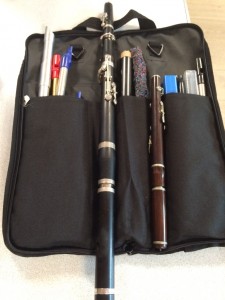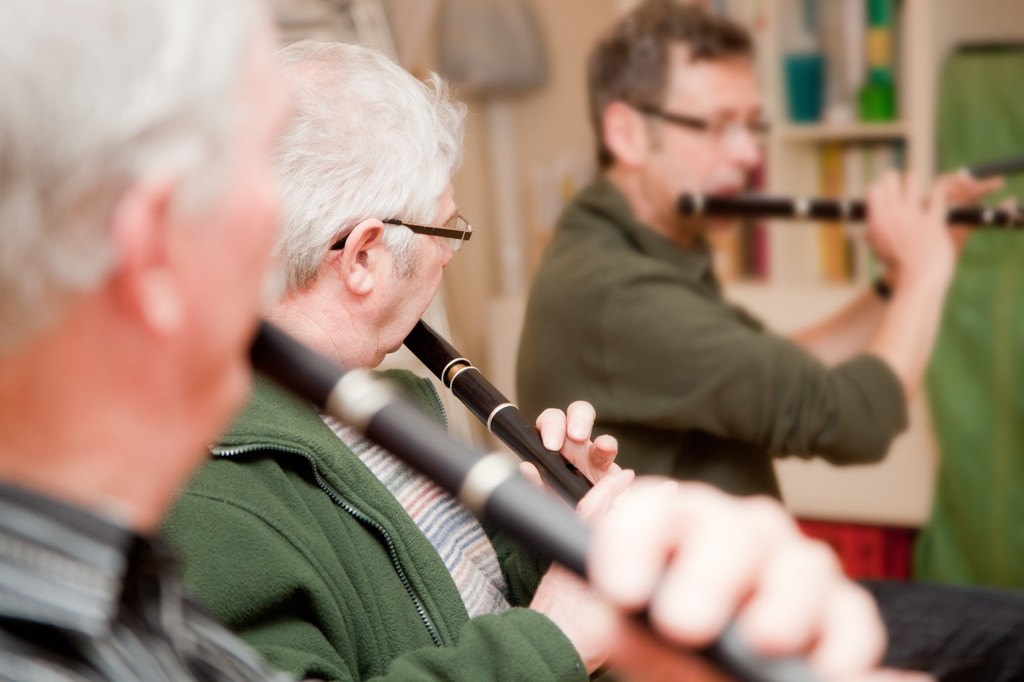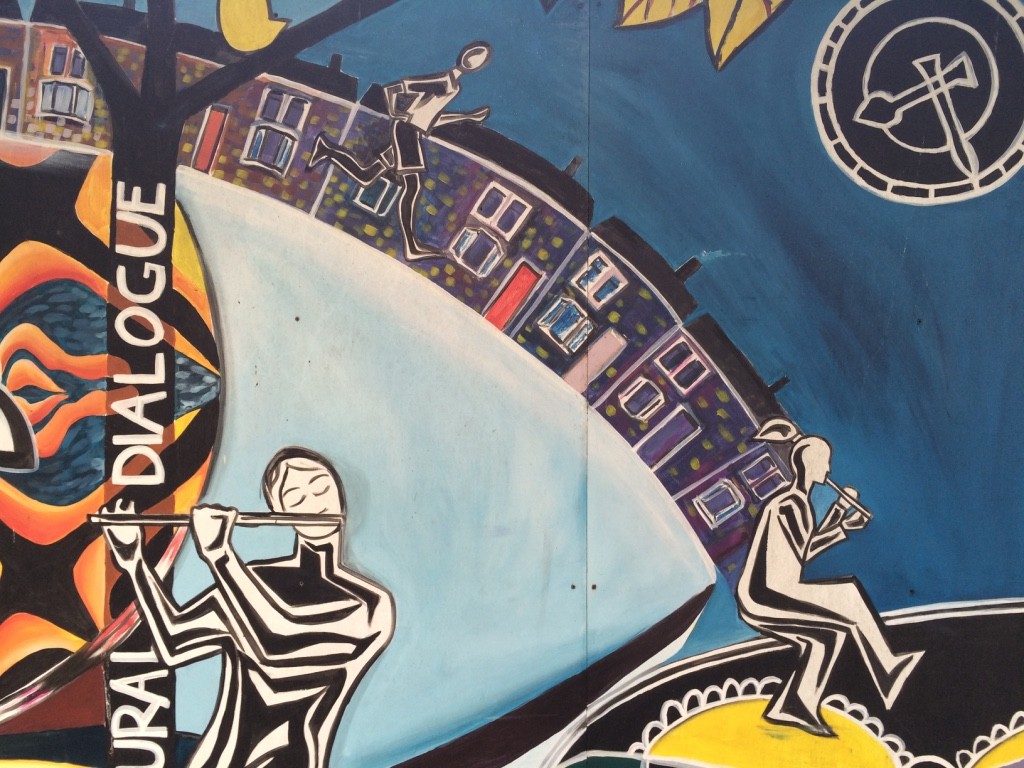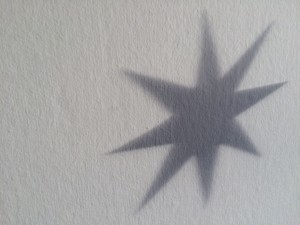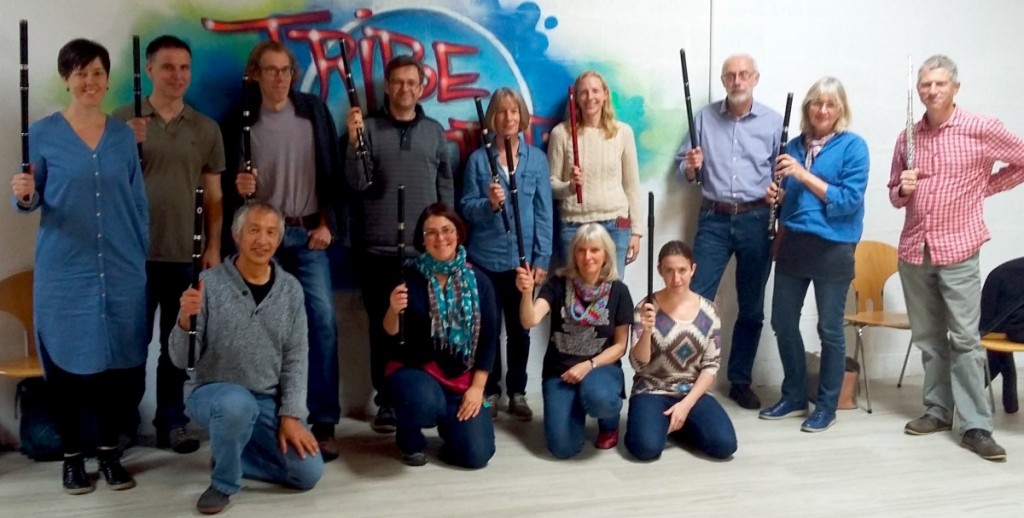 The FluteFling Autumn workshops got off to a great start with ten flutes and two low whistles exploring a range of techniques while learning an air and a reel.
The FluteFling Autumn workshops got off to a great start with ten flutes and two low whistles exploring a range of techniques while learning an air and a reel.
Techniques
We looked at issues around jumping octaves as both of our tunes begin with E-e octave jumps. On the flute, don’t overblow, but use your embouchure to get the upper notes – a fine air stream is required and raising the jaw for the upper notes will push your bottom lip forward very slightly to help achieve this. On the low whistle, ensure breath support is strong to avoid going out of tune.
We looked at using the diaphragm for breath support.
We explored using flat surfaces such as a wall to provide an acoustic mirror and help with understanding our own sound.
Decoration and pulse is used to help emphasise the rhythm. By giving more air to notes on the beat we bring out the colour of the tune. The decoration we looked at began with cuts (single or multiple grace notes from above), strikes (grace notes from below) and rolls (multiple grace notes typically formed by a cut followed by a strike).
The breath can be used as the voice in traditional singing, to provide inflection and context. In the slow air Tha Mi Sgith for example, the breath can be increased and decreased over a phrase or section of the melody
The tunes
Resources
A revised PDF of the music we played can be found here: FluteFling_oct_2016_tunes. I recorded them both but have not been able to upload Sweet Molly to Soundcloud due to technical problems at Soundcloud. I will update it when it becomes possible. However Tha Mi Sgith was successful (see link below).
We had a look at two tunes: Tha Mi Sgith is a slow air that is often played as a strathspey, a march and even a polka. In a modal key, it is the melody of a lullaby commonly played in A Dorian (two sharps), but occasionally in E Dorian (two sharps), which is how we played it. By transposing it down, we brought out the sonority of the flutes and whistles.
Here’s a version I recorded on a whistle previously:
And here’s the version I played in the class on the flute:
According to TuneArch, the strathspey first appeared in the Athole Collection and the Skye Collection of fiddle tunes, both published in the 1880s. There’s some interesting archived discussion at the Mudcat Cafe web site, which includes various translations at a suggestion that it is a fairy love song, with a published version in the 1870s. Marjory Kennedy-Fraser seems to have had a hand in making it popular with her influential Songs of the Hebrides.
I first heard this tune played on Silly Wizard’s Wild and Beautiful, where Phil Cunningham played on a low whistle at a time when the instrument was still relatively unknown. There is a discussion on That Mi Sgith on The Session web site. There’s a recording and some background archived at BBC Alba and the same again here at Learn Gaelic; both sites take you line by line through the song and help with pronunciation.
The second tune was Sweet Molly (or Hopetoun House), published in O’Neill’s Music of Ireland as The Youngest Daughter. The Tap Room is another closely related Irish reel and the opening of Sweet Molly is very similar to the well-known Drowsy Maggie. It appears in various collections, including Kerr’s Merrie Melodies for the Violin, which every Scottish musician should own. Nigel Gatherer has indexed Kerr’s collections and transcribed some of the tunes. Take a look at the alternative titles and variants cited at the Tune Archive website.
Scottish band Sprangeen recorded this in the 1980s as a slow reel, with Ann Ward playing the melody on the flute.
Unfortunately we didn’t have time to explore this tune deeply, but the breath can again be used here to bring out the jumping rhythms of the first part. After some technical issues uploading the file, here’s the recording I made at the end of the workshop:
Thanks are due to Anna from TribePorty for making us so welcome and for sharing the photo.
The next workshop will take place on Saturday November 19th 1-4pm. The following one on Saturday December 17th 1-4pm. Please note that places for both of these will be limited to 15.

